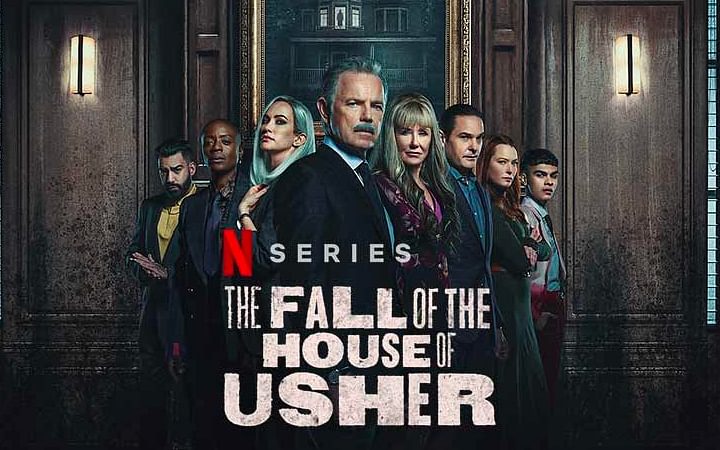

3.5 stars out of 5
The House of Flanagan is still standing strong. “The Fall of the House of Usher” marks Mike Flanagan’s
eighth and final project with Netflix before he takes his talents to the other streaming giant Amazon
Prime. This fruitful relationship has brought about three good must see films, but will be remembered
most for the five series he made for the streaming platform. “American Horror Story” was insanely
popular years before the first Flanagan series came out, but a tv series had never been legitimately
terrifying in a way comparable with film until the masterpiece production of “The Haunting of Hill
House.” A production that has cemented a strong formula for Flanagan on every series he has made after
for Netflix.
Except for Flanagan’s stellar “Midnight Mass”, each of his series has centered on a Literary source. In
fact, starting with “The Haunting of Bly Manor,” Flanagan started to adapt multiple stories of one author
into a bigger season long narrative. This brings us to “The Fall of the House of Usher.” A daunting task as
the series looks to adapt the works of Edgar Allan Poe. A figurehead on the Mount Rushmore of Literary
horror and no easy feat to adapt considering that there have been hundreds of adaptations already and
none are incredibly celebrated (though the Vincent Price ones hold a soft spot in many a fans heart). Can
you think of anytime you have seen a Poe film crack anyone’s horror movie list to watch for Halloween?
A surprising thought when one considers the author’s importance and influence in the horror field.
Unsurprising the Flanagan team has brought together a worthy adaptation that fits in many of the
author’s classics you think of when his name pops up. The series still has a quality that many shows don’t have in cinematography, acting, and writing. Flanagan’s stable of actors has great performances
throughout especially from the newcomers to the fold (Mark Hamill, Mary McDonnell) but Bruce
Greenwood, Rahul Kohli, and Henry Thomas give their best Flanagan performances yet. The show should
be seen. The Usher Patriarch Roderick (Bruce Greenwood) opens our story about to confess to the prosecuting attorney Dupin (Carl Lumbly) who has been trying to get criminal charges to stick against the Usher pharmaceutical empire for decades. Roderick seems to find little point in hiding from the law now that his six children are dead and he claims it’s his fault. From here the story will navigate 3 time periods: Roderick and his sister Madeline’s past that brought them this lucrative empire, the last two weeks of how Roderick’s children die, and the present time of Roderick’s confession.
The only problem with the show is the ultimate horror conundrum of “Is it scary?” Does it capture the
terror of Poe?....... Yes and no. At times the series is overwritten and kills tension. This is clearest with
the character of Carla Gugino’s Faustian demon. For instance, when she torments Napolean Usher while
he hunts “The Black Cat”, the sequence is never able to build up to any fear or terror as there is just too
much dialogue to listen to and showcase, instead of some silence to help build up a dread and fear. It is
in moments like these when the series feels unfortunately very tv. Think monologues. This same
character also seems to be more of a modern voice than a character with their own demonic agenda. For example, the character is some sort of supernatural demon with knowledge of what other characters
could have been if they made different choices, but when she is speaking to Roderick Usher about the
opioid crises he has brought down on this world like a plague, she gives American statistics of how many
have died but states “who knows how many deaths really?” Well, she would know, she is a demon with
omnipotent knowledge seemingly in the show. But instead of stating the figure of that in one sentence,
we now have four sentences getting to this point that more are dead than reported to the government.
If the point was to try and throw in a real figure of the crises, any of the mortal characters could have
done so (Camille the journalist for instance) and been in character. There is also the touch of the
“Flanagan sentimentality” that doesn’t feel quite right with Poe, but once you come to episode 6 “The
Tell-Tale Heart” it is a wonderful ride that feels the way Poe should feel. Terrifying, human, and
inevitable.
On Netflix.




